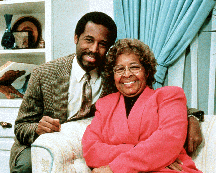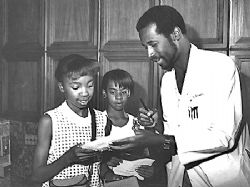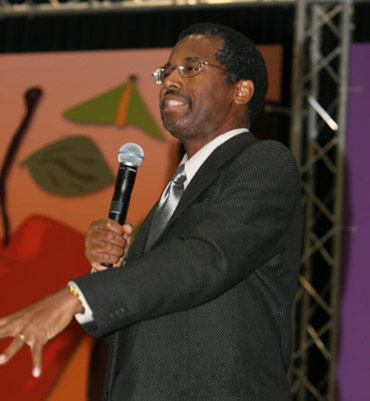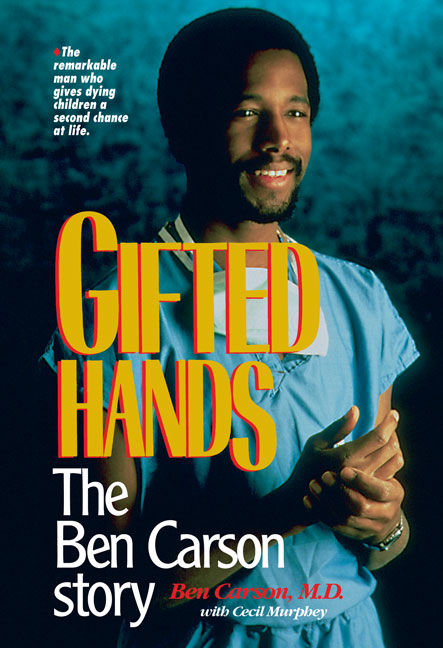While the mass
media-driven stereotype of Black achievement in rapping, dancing or shooting
hoops have consumed all of American culture, in this year…2009…there is at
least one shining example of an African-American succeeding devoid of his stand-out
artistic ability. Some would ask, “What’s the formula for this kind of Black?”
Well, the variety
of talent within Black America is not just restricted to the behind the scenes
story of Notorious B.IG. or Ray Charles - in February TNT broadcast, on the
heels of the instatement of our new president, the amazing story of Ben Carson.
He was the man that made medical history when in 1987 he separated a
pair of Siamese twins joined at the head.
The movie, based on Ben Carson’s
inspirational memoir, chronicles the journey of Carson – played by Cuba
Gooding, Jr. – from his frustrated inner-city days in Mo-Town to the halls of
Johns Hopkins University Hospital.
His autobiography describes life as a child in Detroit
facing the scarcities of a single-parent household and the limitations of the encroaching belief on the part of some his teachers that
"Blacks are not as smart as Whites.”
The film depicts Carson’s grade school award ceremony where
he was highlighted as one of the school’s top students. His honor was
undermined as one of the teachers chastised the other students for having not
worked hard enough to allow a Negro boy from a broken home to surpass them
academically.
While this view has greatly diminished since the era of Ben
Carson, Black students try everyday to overcome any remnant of this world view.
“There’s a certain academic advantage to being Black at my
school. Because we’re on scholarship, we have to keep our grades up,” said
Shannon Cohall, 17, 12th grader at NYC’s distinguished Poly Prep
Country Day School. “I’m not like Meryl Streep’s daughter who has the money to
go there.”
Cohall is a part of a growing number of African-American
students in New York City who are beneficiaries of programs like A Better
Chance or Prep For Prep which identifies the
city’s most promising students of color and prepares them for
placement at independent schools in the city and boarding schools throughout
the Northeast.
“Because
I’m competing with kids with money, I have to make sure my grades are up to par,”
said Cohall, whose parents are heavily involved in her educational pursuits.
“When I heard about Ben Carson and what he was able to accomplish, that’s what
made me decide to become a neurosurgeon.”
Carson, who went on to Yale University to earn a degree in
Psychology, credits his mother, Sonya Carson – played by Kimberly Elise – as
his sole reason for shirking the prejudicial and all so common remarks made at
the predominately
white Higgens Elementary.
He recalls her – a devout Seventh-Day Adventist - saying
over and over to him, “Bennie, if you can read, honey, you can learn just about
anything you want to know. The doors of the world are open to people who
can read.”

In the movie, we
see Sonya – who was illiterate herself - make house rules to enable her boys to
become better students. She restricted their television viewing to two programs
per week. They were required to visit the library each week and to pick two
books to read. Then, Curtis and Ben needed to write a book report for each book
that was read. Afterward, the boys were required to read their reports to their
mother. Never did they detect that their mother could not read.

So, the Barack
Obamas , the Ben Carsons and even the Shannon Cohalls aren’t as arbitrary as
society might think.
To make it to the Director of Pediatric Neurosurgery at Johns Hopkins Hospital or as we can say now, to the President of The United States of America, all you need is the support of a God-fearing mother or father.




